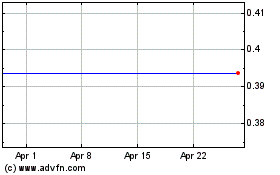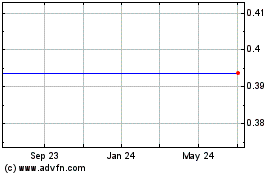AGTC to Present Preclinical Research Supporting Gene Therapy Platform in Frontotemporal Dementia at the 25th Annual Meeting of the American Society of Gene & Cell Therapy
May 02 2022 - 4:33PM

Applied Genetic Technologies Corporation (Nasdaq: AGTC), a
clinical stage biotechnology company focused on the development of
adeno-associated virus (AAV)-based gene therapies for the treatment
of rare and debilitating diseases with an initial focus on
inherited retinal diseases, today announced preclinical data
presented at the 25th Annual Meeting of the American Society of
Gene and Cell Therapy (ASGCT) that expands the potential utility of
its gene therapy platform to address neurogenerative diseases, such
as frontotemporal dementia, and to demonstrate robust gene
expression using hybrid dual AAV vectors. The research will be
featured in poster presentations at the in-person meeting taking
place May 16-19, 2022 in Washington, D.C.
“We are excited by the progress we’ve seen to date with our gene
therapies in ophthalmic diseases and are continuing to assess the
potential of our differentiated platform to treat a range of rare
and debilitating diseases – including neurodegenerative diseases
like dementia,” said Dr. Susan Schneider, Chief Medical Officer of
AGTC. “We believe the preclinical findings in frontotemporal
dementia are particularly encouraging and look forward to
continuing our research to support a potential future
Investigational New Drug Application filing.”
AGTC presentations at ASGCT 2022:
AVrh10-Based Gene Therapy for the Treatment of
Frontotemporal Dementia Caused by GRN Mutations (Abstract
#198)Presenter: Dr. Khalid Arhzaouy, R&D Manager, AAV
Gene Therapy, AGTCSession Date/Time: May 16, 2022; 5:30 p.m. – 6:30
p.m. ETSession Title: Gene Targeting and Gene Correction IPoster
#M-79Location: Hall D
- In up to 10% of patients with frontotemporal dementia (FTD) the
disease is caused by an inherited loss-of-function mutation in the
granulin (GRN) gene, and marked by >50% reduction in
progranulin, a highly conserved secreted protein primarily
expressed in the central nervous system (CNS).
- In this study, progranulin is expressed in the CNS through an
AAV vector encoding a human GRN gene packaged in AAVrh10 capsid and
delivered directly to cerebrospinal fluid via intracisternal magna
(ICM) injection.
- Administration of AAVrh10-GRN in non-human primates resulted in
a dose-dependent and sustained expression of human progranulin in
cerebrospinal fluid and achieved levels above the physiological
level in normal humans, without any vector-associated adverse
effects.
- Results support the feasibility of augmenting progranulin
expression via AAV-GRN gene therapy as a potential treatment for
FDT caused by GRN mutations.
Gene Therapy for Stargardt Disease Using Hybrid Dual AAV
Vectors to Express ABCA4 (Abstract #306)Presenter: Sharon
Norton-Smith, Researcher, AGTCPoster Session Date/Time: Monday, May
16, 2022; 5:30 p.m. – 6:30 p.m. ETSession Title: Ophthalmic and
Auditory DiseasesPoster # M-187Location: Hall D
- Stargardt disease, the most common autosomal recessive form of
early onset macular dystrophy, is caused by mutations in the ABCA4
gene that codes for ATP-binding cassette transporter A4, expressed
in the outer segments of photoreceptor cells in the retina.
- This study investigated a hybrid dual AAV strategy for in vivo
expression of ABCA4 to potentially address known packaging issues
resulting from the large size of the ABCA4 gene.
- The hybrid dual AAV vectors were able to express full length
ABCA4 protein both in vitro in HEK293 cells and in vivo in
photoreceptor cells when delivered by subretinal injection in both
wild type C57BL6 mice and in the ABCA4 knock-out (K/O) mouse
model.
- Treatment of the ABCA4 K/O mice with the hybrid dual AAV system
led to reduced toxic bisretinoids and subretinal injection of the
hybrid dual AAV vectors in non-human primates was safe and resulted
in expression of full-length ABCA4 protein in the retina.
About AGTCAGTC is a clinical-stage
biotechnology company developing genetic therapies for people with
rare and debilitating ophthalmic, otologic and central nervous
system (CNS) diseases. AGTC is a leader in designing and
constructing all critical gene therapy elements and bringing them
together to develop customized therapies with the potential to
address unmet patient needs. AGTC’s most advanced clinical programs
leverage its best-in-class technology platform to potentially
improve vision for patients with inherited retinal diseases. AGTC
has active clinical trials in X-linked retinitis pigmentosa (XLRP)
and achromatopsia (ACHM CNGB3). Its preclinical programs build on
the company’s industry leading AAV manufacturing technology and
scientific expertise. AGTC is advancing multiple important pipeline
candidates to address substantial unmet clinical needs in
optogenetics, otology and CNS disorders, and has entered strategic
collaborations with companies including Bionic Sight, an innovator
in the emerging field of optogenetics, and retinal coding and
Otonomy, Inc., a biopharmaceutical company dedicated to the
development of innovative therapeutics for neurotology. For more
information, please visit https://agtc.com/.
Forward-Looking Statements This release
contains forward-looking statements that reflect AGTC's plans,
estimates, assumptions and beliefs, including statements about the
potential of the company’s gene therapy platform, the ongoing
preclinical development in frontotemporal dementia , the potential
clinical development in frontotemporal dementia, and whether such
work will support future regulatory filings. Forward-looking
statements include all statements that are not historical facts and
can be identified by terms such as "anticipates," "believes,"
"could," "seeks," "estimates," "expects," "intends," "may,"
"plans," "potential," "predicts," "projects," "should," "will,"
"would" or similar expressions and the negatives of those terms.
Actual results could differ materially from those discussed in the
forward-looking statements, due to a number of important
factors. Risks and uncertainties that may cause actual results to
differ materially include, among others: gene therapy is still
novel with only a few approved treatments so far; AGTC cannot
predict when or if it will obtain regulatory approval to
commercialize a product candidate or receive reasonable
reimbursement; uncertainty inherent in clinical trials and the
regulatory review process; risks and uncertainties associated with
drug development and commercialization; risks and uncertainties
related to funding sources for our development programs; the direct
and indirect impacts of the ongoing COVID-19 pandemic on the
Company’s business, results of operations, and financial condition;
factors that could cause actual results to differ materially from
those described in the forward-looking statements are set forth
under the heading "Risk Factors" in the company’s most recent
annual report on Form 10-K, as it may be supplemented by subsequent
periodic reports filed with the SEC. Given these
uncertainties, you should not place undue reliance on these
forward-looking statements. Also, forward-looking statements
represent management's plans, estimates, assumptions and beliefs
only as of the date of this release. Except as required by law, we
assume no obligation to update these forward-looking statements
publicly or to update the reasons actual results could differ
materially from those anticipated in these forward-looking
statements, even if new information becomes available in the
future.
PR Contact:Kerry SinclairSpectrum Science
Communicationsksinclair@spectrumscience.com
Corporate Contact:Jonathan LieberChief
Financial OfficerApplied Genetic Technologies CorporationT: (617)
843-5778jlieber@agtc.com
Applied Genetic Technolo... (NASDAQ:AGTC)
Historical Stock Chart
From Mar 2024 to Apr 2024

Applied Genetic Technolo... (NASDAQ:AGTC)
Historical Stock Chart
From Apr 2023 to Apr 2024
